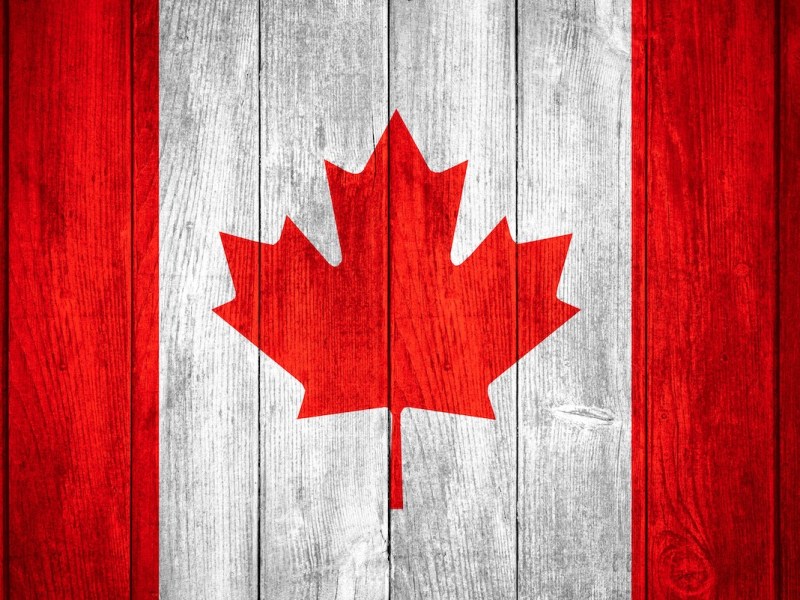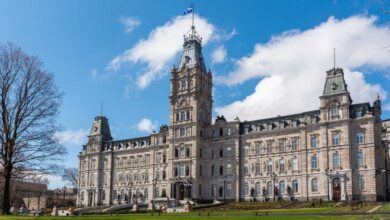New First Home Savings Account

Last Updated On 6 August 2023, 4:17 PM EDT (Toronto Time)
FHSA Canada: The first home savings account is a registered plan allowing first-time homebuyers to save tax-free (up to certain limits) for their first property.
RBC announced on August 3 in a press release that Canadians have opened “tens of thousands” of FHSA accounts since the program’s terms went into effect on April 1.
All the major Canadian Banks and financial institutions have been offering this FHSA account since April 1, 2023.
Since this is the first time this new account has been implemented, many are still confused about whether they are eligible or what the purpose of this account is.
This article enlists eligibility and important information surrounding the FHSA Canada to help our readers have a better understanding of this new account.
Purpose of FHSA Canada or First Home Savings Account
With an FHSA, account holders can begin saving for up to 15 years, with a maximum annual deposit of $8,000 beginning the year the account is opened and a maximum cumulative deposit of $40,000.
Unused portions of the annual contribution limit may be carried forward for up to $8,000 into the following year, and any unused savings are eligible to be transferred tax-free into an RRSP or Registered Retirement Income Fund.
Similar to a Registered Retirement Savings Plan, or RRSP, contributions can be deducted from taxable income.
Similar to a Tax-Free Savings Account (TFSA), investments can develop and be withdrawn tax-free if used for a down payment.
In totality, this new FHSA account is a combination of both a Registered Retirement Savings Plan and a Tax-Free Savings Account.
FHSA Account Canada Eligibility
You are eligible to open an FHSA account if you meet all of the following criteria:
- A first-time house purchaser, which means you, your spouse/partner have not owned your primary residence individually or jointly within the past four to five years.
- at least 18 years old and no older than 71 years old on December 31 of the year an account is opened
- a Canadian resident (Citizens, permanent residents, and certain temporary residents who meet the residency requirements for income tax purposes).
- Work permit holders and international students must reside in the country for at least 183 days during the tax year to qualify as residents.
Types of First Home Savings Accounts
The three types of FHSA accounts that financial institutions are currently offering are as follows:
- A depositary FHSA: This is a bank account that contains cash, term deposits, or guaranteed investment certificates (GICs).
- A trusteed FHSA: This account can be opened with a trust company as trustee and contains qualified investments such as cash, term deposits, GICs, government and corporate bonds, mutual funds, and securities listed on a designated stock exchange.
- An Insured FHSA: This is a contract for an annuity (with a licensed annuity provider).
You can establish a self-directed FHSA if you prefer to construct and manage your investment portfolio by purchasing and selling various categories of eligible investments.
FHSA issuers consist of financial institutions, insurance firms, credit unions, and trust corporations.
How to open First Home Savings Account (FHSA Canada)
Qualifying individuals or families can open an FHSA account at any of the Canadian government’s financial institutions, such as banks, credit unions, trusts, or insurance companies.
To open this account, you will need a Social Insurance Number (SIN), a date of birth proof, and other documentary proofs that prove your eligibility as a first-time home buyer and your residency obligation.
Once you have these ready, you can call any major bank or the one you already have an account with to open up this tax-free FHSA account.
Withdrawing funds from a First Home Savings Account
The funds in your FHSA are not restricted and can be withdrawn at any time for any purpose, but if you are withdrawing the funds to not buy your first home, then withdrawals are taxable.
Otherwise, if you are withdrawing the funds to buy your first home, then withdrawals are non-taxable.
You must satisfy each of the following requirements to qualify for non-taxable withdrawals:
- You are a first-time homebuyer, along with your spouse or common-law partner.
- You have a signed agreement or contract to purchase or complete construction of a qualified property before October 1 of the year following the withdrawal date.
- You have not acquired the property more than 30 days prior to the withdrawal date.
- You have submitted a Form RC725 Request to your FHSA issuer in order to make a Qualifying Withdrawal.
- You are a Canadian resident at the time of the initial withdrawal and when you purchase or construct the residence.
- Within one year of purchase or construction, the property must serve as the primary residence.
What is the FHSA contribution limit?
You can contribute up to $8,000 per year to your FHSA account. $40,000 is the lifetime maximum contribution to a First Home Savings Account.
If you exceed the annual contribution limit for FHSA, a penalty of 1 percent per month applies on deposits in excess of the limit.
Who qualifies as a first-time buyer for an FHSA?
You are considered a first-time homebuyer if you (or your spouse or companion) have never lived in a qualifying property as your primary residence during the calendar year in which you open an FHSA or the four calendar years prior.
Eligible residences include single-family homes, semi-detached homes, townhouses, condominium units (or condos), apartment units, and mobile homes.
To qualify for the FHSA’s tax incentives, you must continue to qualify as a first-time homebuyer until you withdraw funds from your account.
What happens to your FHSA funds if you do not purchase a home?
There are 2 options to withdraw FHSA funds if you do not want to purchase your first home:
1. You can transfer FHSA funds to your Registered Retirement Savings Plan (RRSP) account without affecting your RRSP contribution capacity (or to your Registered Retirement Income Fund account if you converted your RRSP to an RRIF). RRSP and RRIF transfers are not taxable.
2. You may also withdraw funds from your FHSA for not buying residential property. However, the entire amount, including contributions and earnings, will be taxable.
What will happen to your FHSA funds if you become a non-resident of Canada?
If you become a non-Canadian resident after opening a First Home Savings Account, you may continue to make contributions as usual.
However, you will be ineligible to make tax-free withdrawals from your FHSA in order to purchase a home.
As a non-resident, any withdrawals from your FHSA will be taxable and subject to a 25% withholding tax, unless your country of residency has a tax treaty with Canada that entitles you to a lower tax rate or tax exemption.
Who may become a non-resident of Canada?
If your work permit or study permit expires and you do not renew it or become a permanent resident of Canada during that time, you will become a non-resident of Canada.
If you do not satisfy the physical residency obligation to preserve your permanent residence in Canada, you become a non-resident of Canada.
If you remain in Canada for less than 183 days in a particular tax year and do not have significant residential ties to the country; if you give up your PR status or Canadian citizenship; and if you do not have significant residential ties to the country, then you become a non-resident of Canada.
Source: Canada Revenue Agency (CRA)






fhsa questrade, scotiabank fhsa, fhsa bmo, fhsa withdrawal, fhsa gic, rbc fhsa, tangerine fhsa, fhsa wealthsimple, fhsa eq bank, fhsa rules, first time home buyer savings account, fhsa tax deduction, first time home buyers account, tax free first home savings account fhsa, fhsa rbc, how to open fhsa, fhsa eligibility, cibc fhsa, fhsa withdrawal rules, fhsa limit, homebuyers savings account, tax free home savings account, is fhsa tax deductible,




